
Online Offerings
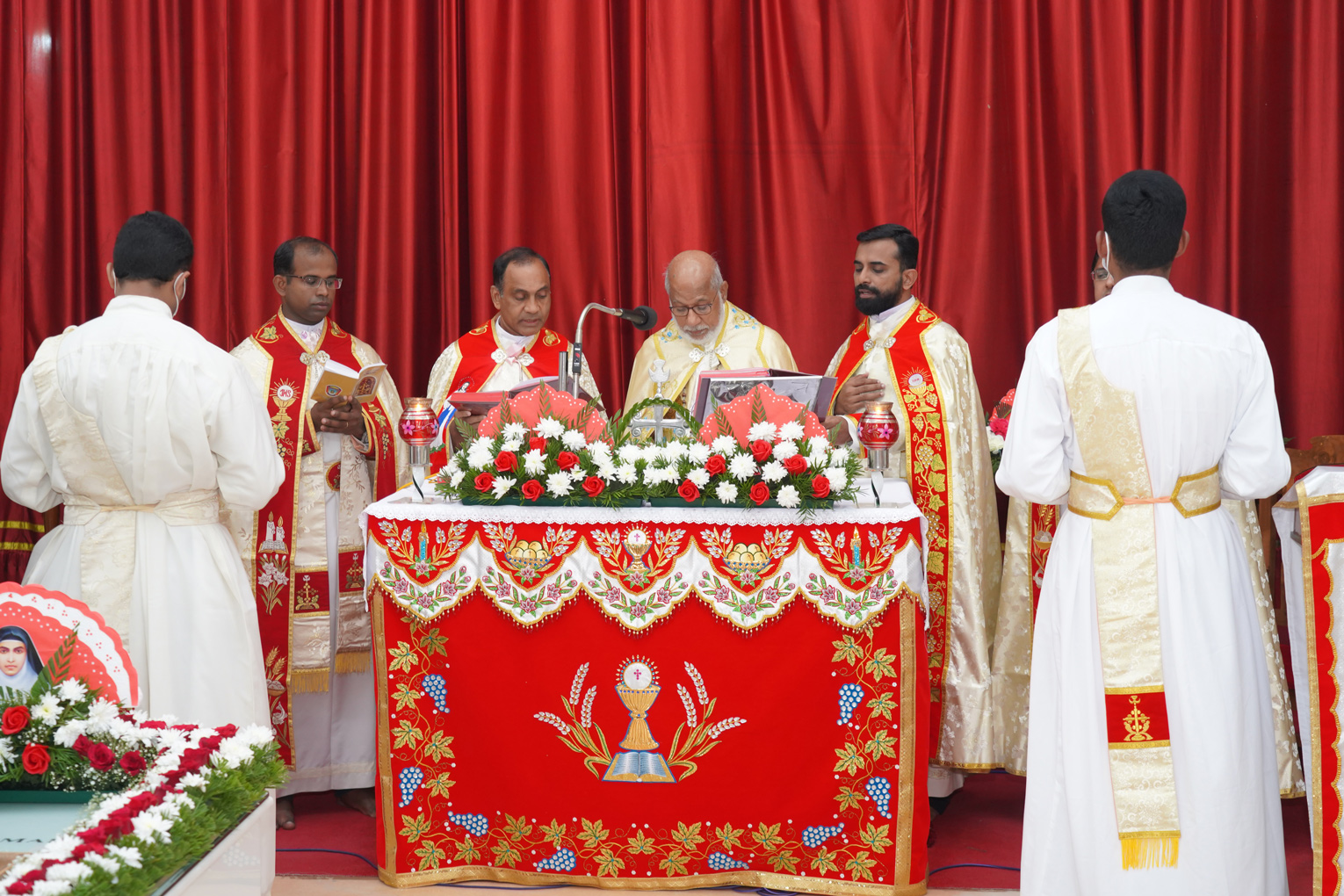
Payment for the above may be made at the counter near the Centre or at the stall on the first floor of the museum.
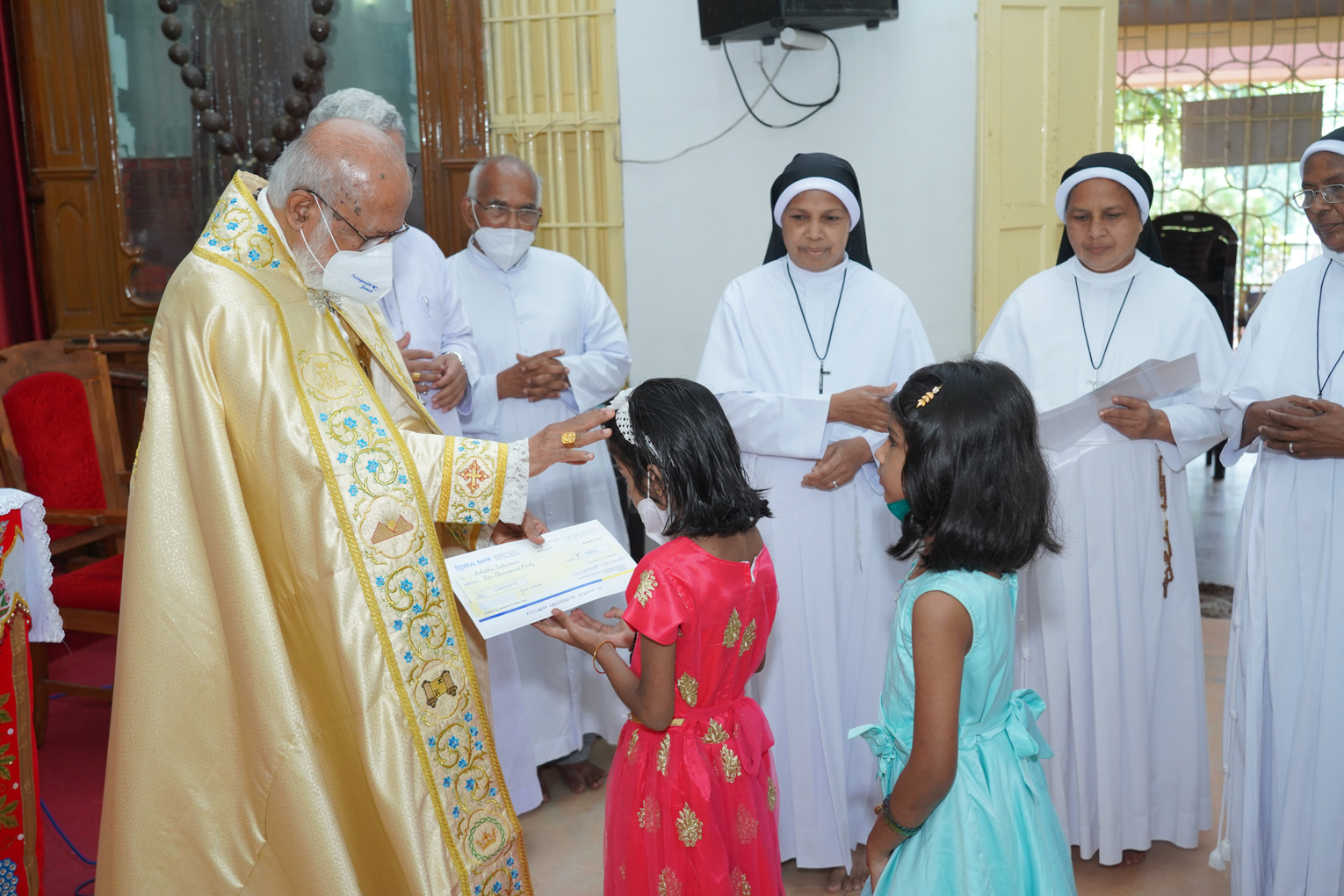
Dedication is a special prayer. The devotee dedicates themself to the saint. Coupons for this are available from the counter. Alphonsamma's special patronage was secured by dedication.

Devotees make offerings of clothes like sari, churidar, trousers, shirt, or dhoti at the tomb as an act of gratitude to the Saint for her intercession in a marriage already solemnized or as an offering to the Saint for her intercession so that a marriage may take place. If this is not practicable, the equivalent sum of the intended offering may be contributed to the ‘Marriage Fund’ being raised by the Centre.
The clothes collected are distributed to the poor girls at the time of their marriages, with the recommendation of their parish priests.
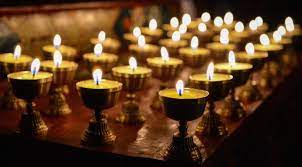
Devotees may buy multi-tiered lamps from the stall and offer them at the tomb for favours received or to be received.
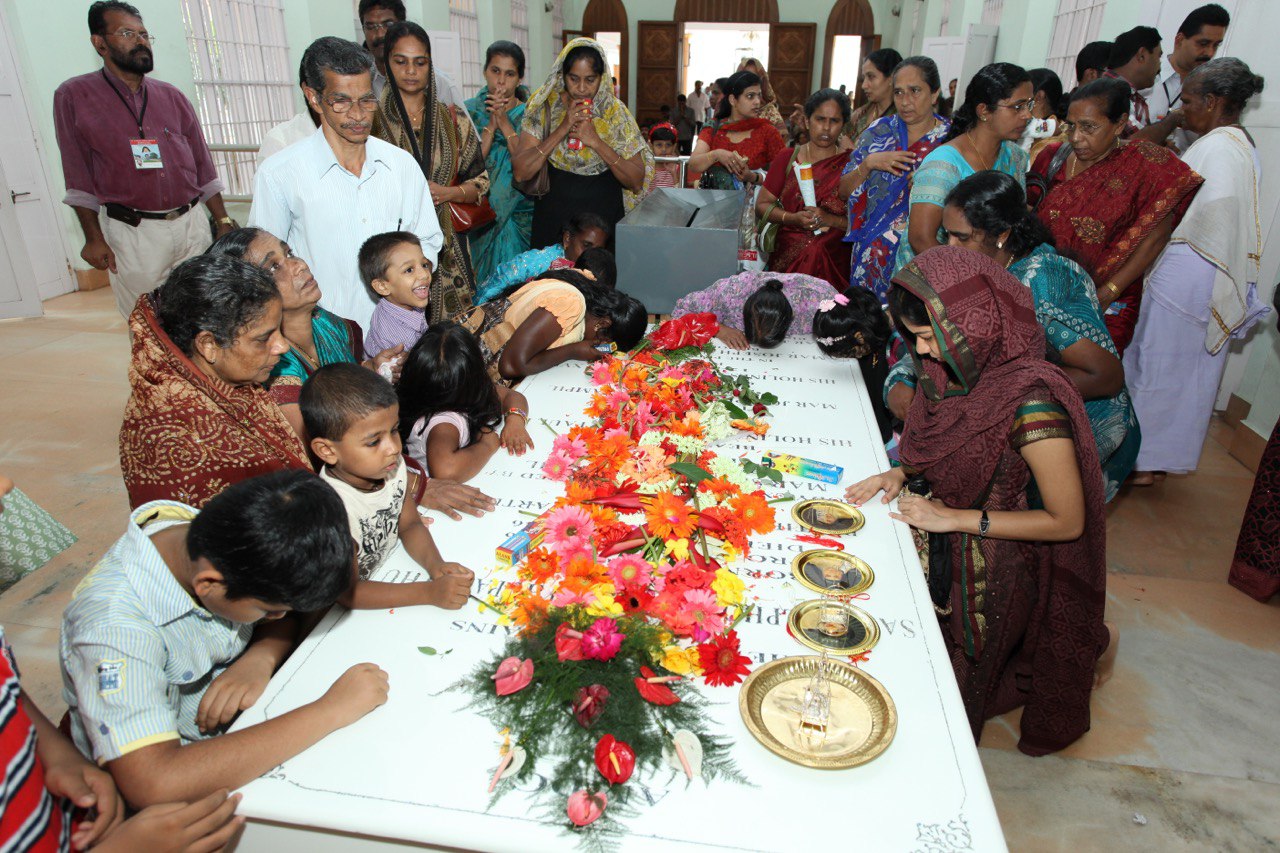
After paying the fee, a devotee may make an offering at the tomb of the cradle made of silver and say the prayer of intercession. Prayer over, it is to be returned to the office.
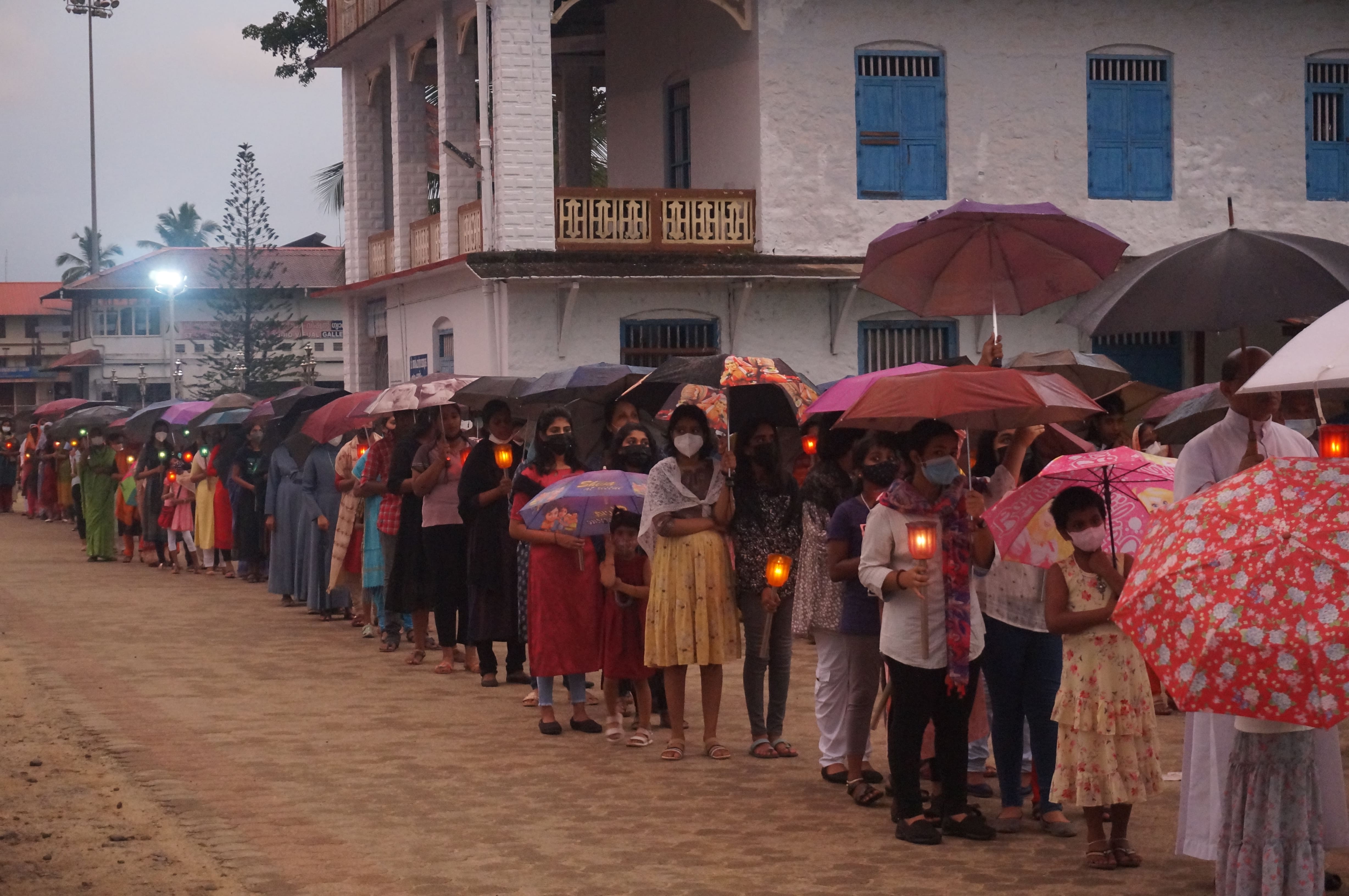
Devotees can buy the candles from the authorised stalls and offer them at the tomb. They may be lit only at the place set apart for it. They must not be lit in bundles. Devotees can also kindle the candles placed there after dropping the intended amount in the box.

They can be safely deposited in the coffer in the cover purchased from the counter or entrusted to the office.
Offering of money should be deposited in the church coffers. They must not be placed at the tomb.
Written prayers of intercession or expression of thanks for favours received may also be dropped in the box.
Offerings of objects like cardamom, pepper or oil may be placed at the tomb.
NB: Devotees are warned against being duped by peddlers of fake objects. Instead, they may put the intended amount in the box.
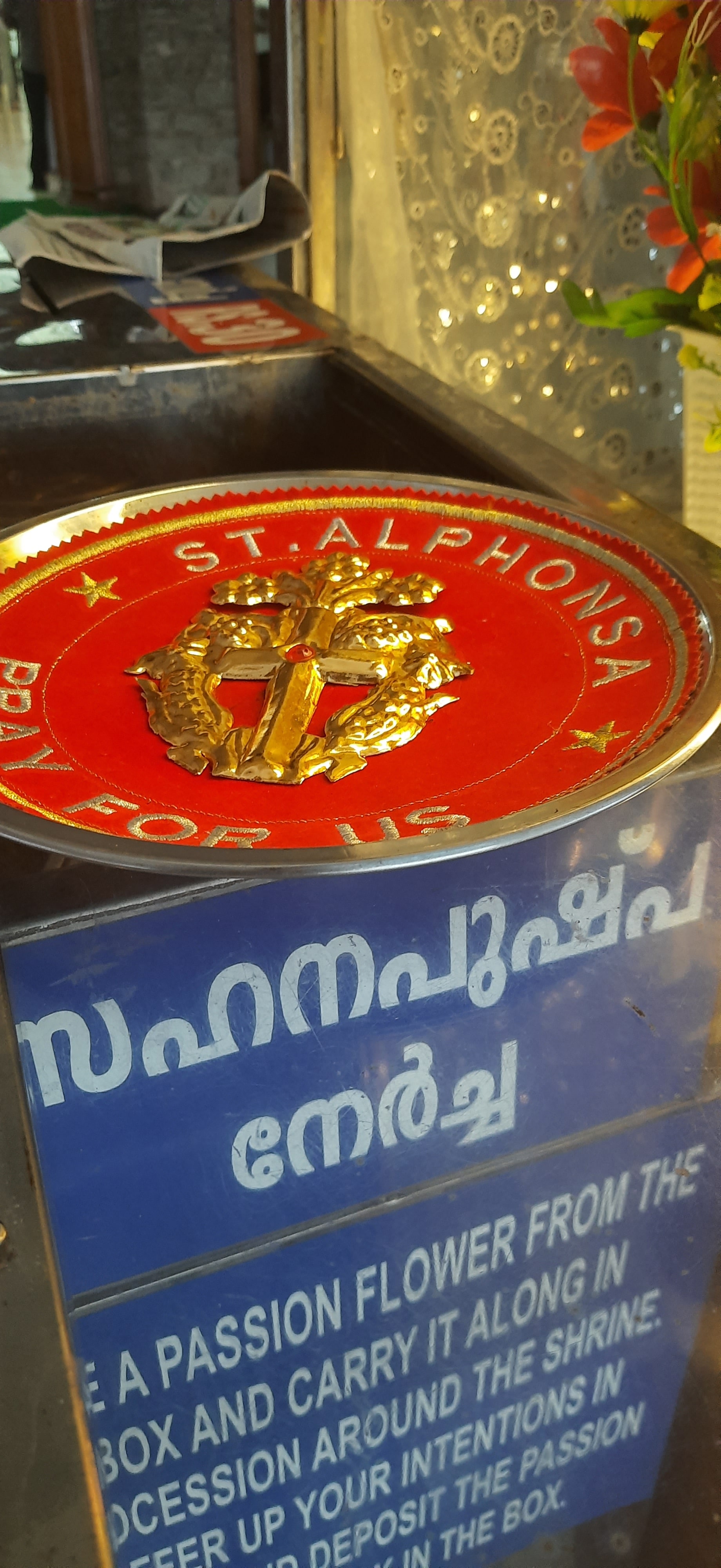
Saint Alphonsus is the Mediator of Sufferings. Suffering is common in this world. As a participation in these sufferings, people offer their sufferings and take the Sahanapushapa vow.
